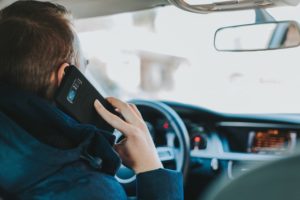
On April 22, 2014, the United States Supreme Court determined that an anonymous tip from a 911 caller alleging a traffic violation may be enough to establish reasonable articulable suspicion for a law enforcement officer to perform a traffic stop. The Court’s ruling in Prado Navarette v. California, 572 U.S. ____ (2014), a 5-4 decision, will be sure to impact DUI and other traffic stop cases. Unfortunately, this case expands police powers and infringes on our freedom to come and go without police interference.
In this case, a law enforcement officer responded to a dispatcher who relayed a tip from a 911 caller reporting the make, model, and license plates of a car that “ran the reporting party off the roadway.” This officer spotted the car and followed the car for five minutes. During this time of observation, he found the driver’s driving to be irreproachable.
The Supreme Court determined that an anonymous tip of this sort provides enough reasonable suspicion to justify a traffic stop. It reasoned that a report of a single instance of running a car off the road gave rise to reasonable suspicion of drunk driving. The Court seems to base its decision on the fact that the call reported “more than a minor traffic infraction” and the call seemed to be truthful based on the contemporaneous report by the caller. The Court also indicated that caller ID is now usually available so callers would likely have good motives.
“Under the totality of the circumstances, we find the indicia of reliability in this case sufficient to provide the officer with reasonable suspicion that the driver of the reported vehicle had run another vehicle off the road. That made it reasonable under the circumstances for the officer to execute a traffic stop.”
In Scalia’s dissent, he explains that a malevolent 911 caller can merely assert a traffic violation without fear of consequences and that would mean that the targeted car will be pulled over by the police. Scalia argued that one incident of swerving could be explained by other reasons other than intoxication and believed the officer’s observations of irreproachable driving gave him no reason for a traffic stop. He blasts the majority’s opinion stating:
“After today’s opinion all of us on the road, and not just drug dealers, are at risk of having our freedom of movement curtailed on suspicion of drunkenness, based upon a phone tip, true or false, of a single instance of careless driving.”
As a traffic defense attorney, I find this decision unsettling. Defense attorneys need to hold the line and hold the government accountable. I remind drivers that it is important to remember how to respond when police pull you over. You should be polite but you are not obligated to answer all the questions police have for you. If you are charged with a crime, hire an attorney to protect your rights and defend your freedoms!
Call 757-384-4357 for a free traffic or criminal law consultation.